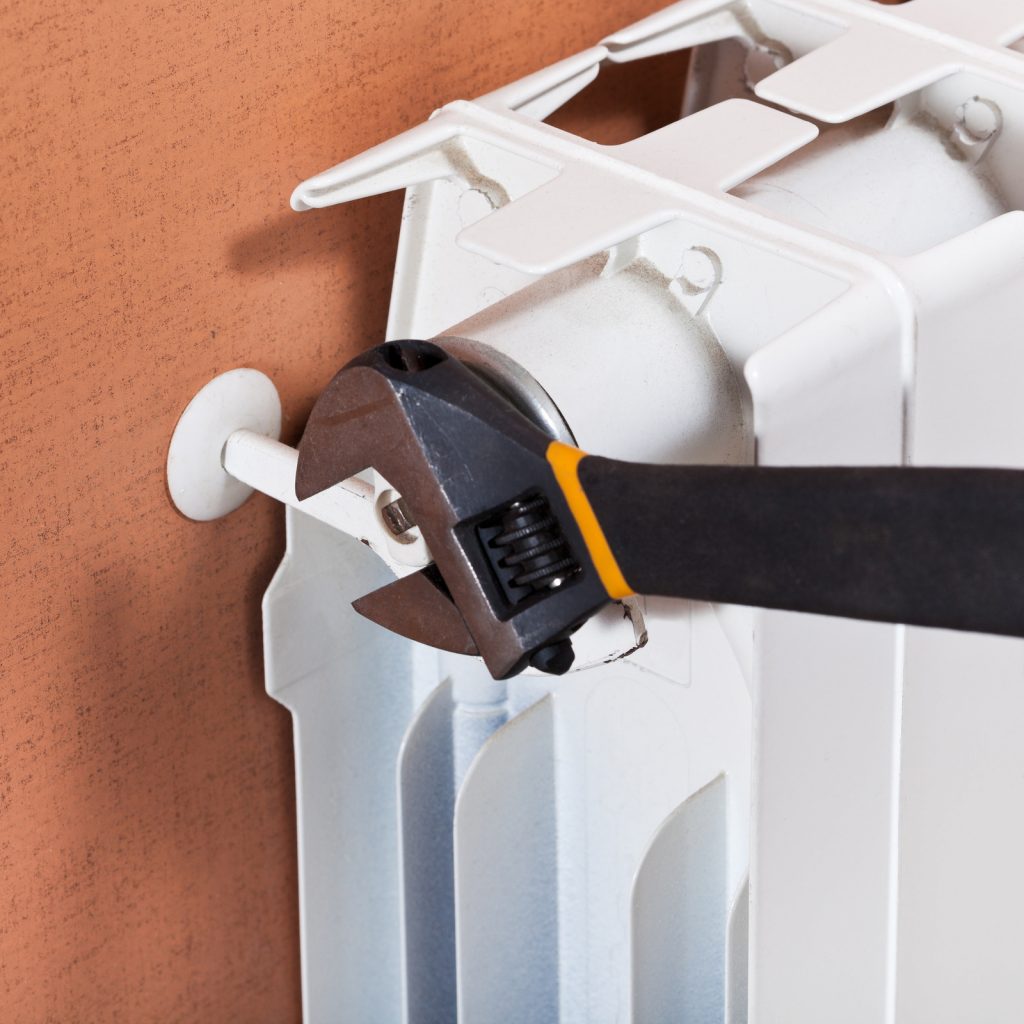Powerflushing a domestic heating system has been around for years and came from adapting commercial power flush procedures. Sludge within radiators, especially heavy and settled, can best be removed with power flushing. We look at what it is and how it can benefit your heating system and boiler.
What is a central heating power flush?
A Powerflush is a cleaning and flushing procedure for a boiler to clear sludge, debris and scale from the central heating system. It uses a special machine with an external pump and tank that forces water and cleaning chemicals through the entire system, reaching the inner surfaces to ensure complete removal.

Why do central heating systems need a flush?
Corrosion can occur when water comes into contact with metals in a heating system and if it’s just left, sludge (rust and dirt), limescale and other debris build-up. They can move around and cause blockages anywhere in the system including inside the expensive boiler components that can result in poor heating performance and even breakdown.
Not all heating systems are suitable for a power flush. They need to be wet central heating systems where water is circulated, so electrical heating systems cannot be done. Systems that have smaller pipes less than 15mm may not be suitable for a power flush either. The engineer will check first.
How much does a power flush cost in 2021?
A powerflush can take anywhere between a few hours to two days so the cost will reflect this. The average is around £300 for a small system with few radiators. For a large system that has very dirty water and problems are found that need to be fixed, the total cost can rise to £650.
How do you know if you need a power flush?
A few indicators that you need to flush a heating system could be:
- System is forced to work harder and takes longer to heat up
- Some radiators are only warm even when the pipes to them are hot
- Radiators need regular bleeding (corrosion causes gas build up)
- Some radiators are completely or partially cold when system is running
- Higher energy bills because the system is inefficient
- A noisy boiler making kettling noises
- Repairs are more frequent
- A leaky heating system especially at radiators
- Water comes out discoloured when bleeding radiators
When should a power flush be carried out?
British Standards state that cleaning and flushing should be undertaken before commissioning a new system, or repairing an older one. A power flush may be necessary after 5 years to remove poor quality water in the pipes and radiators and increase their efficiency again. Powerflushing the system when replacing a boiler is highly encouraged to prevent frequent breakdowns.
Checks before a power flush is done
A power flush isn’t recommended in all situations and the engineer will check whether it is the best option for your situation. Some of these include:
- Check what type of system it is, sealed or open
- Check how many radiators there are and what type and condition; look for any cold spots.
- Check the age and condition of the boiler
- Check the model of boiler to make sure its heat exchanger is able to cope with the cleaning chemical to be used
- Is the heating system in a condition to withstand a powerflush
- Take a water sample from the heating system
How does a power flush work?
A power flushing unit is connected to your central heating and sends water at high speed through the system using an external pump. A chemical is added to help the cleaning process. Each radiator in turn is cleaned out individually by shutting the valves of the others, until clear water is seen from it. The system water is then tested again.
After the power flush, an inhibitor is added to keep the system clean and protected. They do this by creating a barrier between the metal surface and the water that’s moving around. It’s also important to fit a magnetic system filter to work with the inhibitor to prevent sludge and debris from causing damage to the boiler in the future.
Advantages of a Powerflush over other types of heating system flushing
A power flush is not the only way to clean the central heating system. A mains pressure clean and flush, as well as a flush using gravity, can be used instead. But a power flush has these advantages over them:
- Can add cleaning chemical on the same day as the powerflush. Other types of flushing require it to be added the day before.
- The powerflush machine pump is more powerful than using a standard boiler circulator pump
- A powerflush has the necessary water flow rate with a pump which is not available to mains water supply pressure flushes.
- Clears out much more sludge and debris than other types of flushing
- Reduces the amount of boiler repair callouts that can occur when poor water quality damages boiler components.
How long does a powerflush take?
Most power flushes take one working day. A small system with less than 8 radiators and that is only slightly dirty can be flushed in about 3 hours. Whereas a large system with lots of blocked or dirty radiators can take between 8 hours and 2 working days to clean properly.
Can you do a powerflush yourself?
You don’t need to be a qualified gas engineer to do a power flush yourself. You can hire out a power flushing machine for the job, attaching the machine pump to a radiator tail. But if you don’t have plumbing skills and know-how a boiler and the heating system works, you are taking a risk should anything go wrong.
Can a magnetic filter do the same job as a powerflush?
A power flush machine circulates the water at very high speeds around the heating system which is very effective in dislodging heavy sludge. A standard system pump doesn’t push water through near these speeds so only the debris that comes into the magnetic filter can be picked up, not the heavy materials causing problems in radiators.
*The information in this article should be used for general guidance only and not as financial advice. Full details are on the link in the footer to our disclaimer page. Always discuss your requirements with a competent and suitably qualified professional before undertaking any work.
Affiliate disclosure
Heatology.co are participants in a variety of affiliate schemes which help fund and run this website, visitors who follow our links and purchase a product may earn Heatology.co a commission. The money we make from affiliate marketing costs you nothing but keeps us online, so thank you for your continued support!
